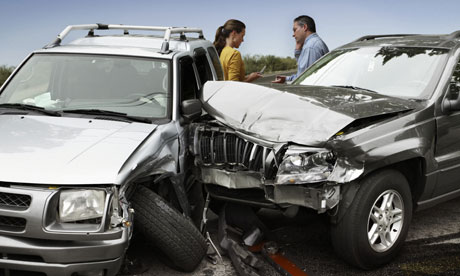
Dishonest householders making bogus claims on motor and home insurance policies pushed the value of detected insurance fraud to a record £840m last year.
The figures, released today by the Association of British Insurers, reveal that 122,000 fraudulent insurance claims were uncovered last year, up 14% on the previous year, while the value of the claims also rose by 14% on 2008 figures.
Although motor insurance claims were highest by value, the most common frauds involved home insurance with 62,000 bogus or exaggerated claims detected last year.
Examples of home insurance fraud range from exaggerating claims by adding extra items to people dropping their old television down the stairs in order to claim for a new flat-screen model.
The rise in fraudulent claims has also been pushed up by the 8,500 dishonest personal liability claims made last year. These include the man who claimed he had fractured his hand after falling over a pothole in the street, when in fact he had sustained the injury after he punched a wall during a domestic dispute. Another was from a young woman who claimned to have tripped over a loose pavement when in fact her injuries were sustained from jumping down a flight of stairs while running away from security guards on suspicion of shoplifting.
Nick Starling of the ABI said: "Our honest customers rightly object to having to pay higher premiums to subsidise the fraudulent minority, which is why insurers continue to up their game in the war on the cheats."
A report out earlier in the week from the AA showed that the cost of car insurance has grown at its fastest ever rate, in large part due to a rise in fraudulent claims. During the three months to the end of June, car insurance premiums went up by 11.5% to £704 for an average annual comprehensive car policy, according to the AA British Insurance Premium Index. This is the biggest increase recorded by the motoring organisation since it started tracking quarterly insurance premium trends 16 years ago.
That report pointed to a big rise in organised fraud, whereby criminal gangs work to systematically defraud insurers. The most common way of doing this is via a "cash for crash" scam in which criminals stage accidents, typically at roundabouts, by slamming their brakes on suddenly causing the car behind to crash into them. The fraudsters then claim for the cost of repair or replacement of their vehicle on the innocent driver's insurance.
While the number of fraud cases detected by insurers is at a record high, the total cost to the industry of undetected general insurance claims fraud is believed to be at around £2bn a year. This typically adds £44 a year to the insurance premiums paid by all policyholders.

